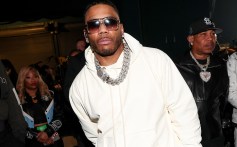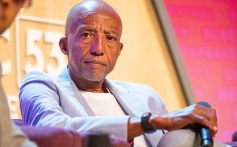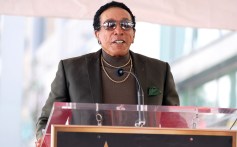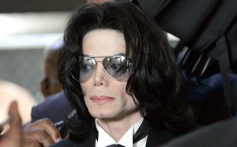Legal News
Page: 2
Trending on Billboard
A judge has thrown out civil sexual assault claims brought against Kevin Liles by an executive assistant who worked for the legendary record executive at Def Jam in the early 2000s.
An anonymous woman filed suit in February alleging Liles, who was her boss and the president of Def Jam, made sexually inappropriate comments, groped her and ultimately raped her in 2002. Liles denied the claims as “patently false,” saying when they were filed that he has “intentionally built a reputation for doing things the right way, treating people the right way and empowering women.”
Related
As it turns out, these allegations are barred entirely from court. That’s because Def Jam’s corporate parent, Universal Music Group (UMG), already paid the woman $47,500 in 2005 to settle a civil rights complaint she’d filed with New York state regulators.
That original complaint alleged the woman was unlawfully fired in retaliation for complaining about verbal harassment and inappropriate dancing by Liles. It did not include rape claims. Without admitting any wrongdoing, UMG agreed to pay the woman in exchange for her agreeing not to bring any further legal action.
Liles was not involved in that settlement agreement, since he’d left Def Jam by the time it was signed. But U.S. District Judge Naomi Reice Buchwald held in a Monday (Nov. 24) order that the release language still “expressly and unambiguously covered” Liles, meaning the woman cannot now sue the music mogul.
“The agreement and release itself contains no language cabining its terms at all,” wrote Judge Buchwald. “To the contrary, the agreement consistently and intentionally utilizes broad language discharging ‘any and all’ claims which ‘are known or reasonably should be known’ by plaintiff.”
The judge threw out the lawsuit permanently, saying there’s no amendment the woman could make that would allow her to “avoid the consequences of a comprehensive settlement agreement.”
Reps for Liles declined to comment on the decision Monday. Lawyers for the accuser did not immediately return requests for comment.
Liles ran Def Jam from 1999 to 2004, and he co-founded 300 Entertainment with Lyor Cohen, Roger Gold and Todd Moscowitz in 2012. The label, which quickly gained recognition for developing hip-hop superstars like Megan Thee Stallion, Migos and Young Thug, was acquired by Warner for $400 million in 2021. He left his role as 300’s CEO last year.
A few months after the former Def Jam assistant brought her lawsuit this past year, Liles put out a statement saying rapper Lady Luck was trying to extort him with false sexual assault claims of her own. Liles said in May that Lady Luck, who was signed to Def Jam during his tenure, had threatened to release a book and file a lawsuit filled with “utterly false and horrendous allegations” if he didn’t pay her $30 million.
Trending on Billboard
Three years after Aaron Carter’s sudden death at the age of 34, the deceased singer’s family has been granted a trial next year against doctors and pharmacies that gave him access to Xanax pills.
The 2000s teen pop sensation drowned in a bathtub in 2022 after inhaling refrigerant gas and taking Xanax. Carter’s former fiancée later sued on behalf of the son they had together, alleging that psychiatrist Dr. John Faber and dentist Dr. Jason Mirabile over-prescribed him Xanax, and that Walgreens and an independent Los Angeles pharmacy wrongly filled the prescriptions without checking to see if Carter was abusing the drug.
Related
Both the doctors and the pharmacies sought to throw out the case based on expert reports concluding that the amount of Xanax in Carter’s system was not enough to make him lose consciousness, and that the real culprit was the gas he inhaled from canisters of compressed air (known as difluoroethane). But Carter’s lawyers have their own experts who say Xanax was at least partly to blame for his drowning — meaning the case must be decided by a jury.
“Defendant concedes that plaintiff’s opposition, supported by expert Dr. George C. Georgaklis, raises a triable issue of material fact as to the medical malpractice claim,” wrote Judge Daniel L. Alexander in a July 31 order rejecting Dr. Mirabile’s argument. “Thus, the Court denies the motion for summary adjudication as to medical negligence and wrongful death.”
Judge Alexander similarly denied Santa Monica Medical Plaza Pharmacy’s motion on Sept. 22 and arguments from both Walgreens and Dr. Faber this past Friday (Nov. 21). The negligence and wrongful death claims are now set for trial in June 2026, unless a settlement is reached before then.
Related
The various summary judgment orders did, however, trim away portions of the lawsuit that sought damages for the pain and suffering Carter experienced before his death. The judge said these are claims that only Carter’s estate representative has the right to bring, not his now four-year-old son, Princeton Lyric Carter.
That means that if the lawsuit indeed goes to trial in June, the child can only seek financial damages from the doctors and pharmacies for harm he himself suffered from Carter’s death. This includes loss of financial support and emotional damage from not getting to know his father.
In a statement to Billboard on Monday (Nov. 24), the Carter family’s attorney Marc Lazo said his team is now “hopeful that the defendants will realize the magnitude of their liability and enter into good-faith settlement negotiations accordingly.”
Lawyers for the doctors and pharmacies did not immediately return requests for comment.
Carter got his start opening for the Backstreet Boys, of which his older brother Nick Carter was a member, in the late 1990s. He later became a teen heartthrob in his own right, with his 2000 album Aaron’s Party (Come and Get It) peaking at No. 4 and spending 67 weeks on the Billboard 200.
Carter was open later in life about struggling with substance abuse. The singer did multiple stints in rehab, and he had been attending outpatient therapy in the months leading up to his death.
Trending on Billboard
GloRilla has defeated a lawsuit that accused her of stealing a social media personality’s viral catchphrase “all natural, no BBL” for her 2024 song “Never Find.”
The federal copyright case was filed this summer by Natalie Henderson, aka @slimdabodylast on Instagram, who claims she coined the catchphrase referencing “Brazilian butt lift” surgery. Henderson says GloRilla (Gloria Woods) stole the phrase for her lyric “All natural, no BBL/ Mad hoes go to hell” on “Never Find,” a bonus track off her debut album Glorious.
Related
GloRilla’s lawyers denied any infringement and argued that nobody can copyright a “cliched” expression like “all natural, no BBL.” But it doesn’t look like a court will have to decide these substantive questions; Judge Lance M. Africk dismissed Henderson’s lawsuit on Friday (Nov. 21) based on geographical technicalities.
The suit was brought in Henderson’s home state of Louisiana, but the judge ruled that wasn’t enough to establish jurisdiction over GloRilla, a Georgia resident, or the various label defendants also named in the lawsuit — California-based Universal Music Group and Warner Chappell, Tennessee-based CMG and New York-based BMG.
Henderson tried to argue that jurisdiction was established by GloRilla doing business in New Orleans, including by attending the 2025 Super Bowl and performing at the city’s Smoothie King Center when she opened for Lil Baby’s It’s Only Us tour in 2023 and Megan Thee Stallion’s Hot Girl Summer tour in 2024. But Judge Africk was not convinced.
Related
“Plaintiff’s claims do not arise out of or result from defendant Woods’s concerts or personal appearances in Louisiana, particularly when plaintiff has not made any allegations that ‘Never Find’ was ever performed in Louisiana,” wrote the judge.
Judge Africk similarly rejected Henderson’s contention that the case could be brought in Louisiana because “Never Find” was distributed in the state. He noted that the song was available worldwide — and also pointed out a major hole in Henderson’s argument.
“Plaintiff relies on her counsel’s purchase of a copy of defendant Woods’s album Glorious on vinyl at a New Orleans record store as evidence that defendants ‘specifically targeted consumers in Louisiana,’” wrote the judge. “However, ‘Never Find’ was not included on the vinyl that plaintiff’s counsel purchased, as it was only released as a bonus track on an exclusive digital version of the album Glorious.”
The lawsuit was dismissed without prejudice, meaning Henderson can attempt to refile the lawsuit in a different state if she so chooses. Her lawyer did not immediately return a request for comment on Friday, and neither did GloRilla’s reps.
This isn’t GloRilla’s first time defeating a copyright infringement lawsuit. Another case, which alleged her hit songs “Tomorrow” and “Tomorrow 2” sampled a decades-old hip-hop track without permission, was also dismissed out of New Orleans federal court last year for jurisdictional reasons.
GloRilla was sued again a year ago alongside Megan Thee Stallion, Cardi B and Soulja Boy for supposedly sampling the 2008 Plies song “Me & My Goons” without clearance on their collaboration “Wanna Be.” That case was voluntarily dropped in March.
Trending on Billboard
Don Henley and his longtime manager Irving Azoff have won dismissal of a lawsuit over their ultimately unsuccessful prosecution of three men for allegedly trying to sell stolen, original lyrics from the Eagles’ 1976 album Hotel California.
Rare book dealer Glenn Horowitz sued Henley and Azoff for malicious prosecution in February, alleging they manipulated New York prosecutors into charging him and two other innocent men. The criminal case was thrown out midway through trial last year, after Henley belatedly produced evidence relevant to whether or not the Hotel California lyric notes were truly stolen in the first place.
Related
Henley and Azoff say they did nothing wrong and that the collapse of the criminal case was merely based on a technicality. A judge in New York court sided with the duo in a Nov. 10 order dismissing the malicious prosecution claims as legally deficient.
“There was ample probable cause for the DA to bring a case against Mr. Horowitz; indeed, a grand jury indicted Mr. Horowitz based upon the DA’s independent and years long investigation,” wrote Justice Kathleen Waterman-Marshall. “The dismissal of the case at trial after complainant Henley produced documents — none of which were found to exculpate Mr. Horowitz — did not result from any bad faith conduct on the part of the defendants and, thus, does not change this result.”
In a statement to Billboard on Friday (Nov. 21), Henley’s attorney Dan Petrocelli said, “The only malicious prosecution was Horowitz’s own lawsuit, which the court promptly and rightly dismissed.”
Meanwhile, Horowitz’s lawyer, Caitlin Robin, told Billboard that they will appeal Justice Waterman-Marshall’s decision. Horowitz also has a separate malicious prosecution lawsuit still pending against the city of New York.
Related
The debacle stems from the work of journalist Ed Sanders, who was hired in the late 1970s to write a book about the Eagles. Sanders spent time at Henley’s Malibu home while working on the manuscript, which was never published — and, according to the rock star, Sanders stole his handwritten Hotel California lyrics in the process.
The lyrics resurfaced in 2012 on an auction site. Sanders allegedly sold the papers to Horowitz, who in turn sold them to Rock & Roll Hall of Fame curator Craig Inciardi and memorabilia auctioneer Ed Kosinski. Henley complained about the auction listings to various criminal authorities, and Horowitz, Inciardi and Kosinksi were indicted in New York in 2022.
All three men maintained their innocence, arguing that the lyrics were never actually stolen. The trio instead claimed Sanders legally obtained these notes from Henley in the course of writing his manuscript, so it was completely bogus for them to be charged with criminal possession of stolen property.
The case against Horowitz, Inciardi and Kosinksi went to trial in February 2024, with Henley and Azoff both testifying. But things were thrown into disarray when, weeks into the trial, Henley handed over 6,000 pages of documents that he’d previously withheld under attorney-client privilege. These documents included emails discussing Sanders’ unpublished manuscript.
Lawyers for Horowitz, Inciardi and Kosinksi all complained that these late disclosures had prevented them from fully exercising their right to prepare a defense and cross-examine Henley on all the evidence. As a result, prosecutors dropped the charges mid-trial.
Justice Curtis Farber, who oversaw the criminal case, criticized Henley and his lawyers for using attorney-client privilege “to obfuscate and hide information that they believed would be damaging to their position that the lyric sheets were stolen.”
Henley’s lawyers strongly disagree with Justice Farber’s characterization of the events. They say Henley had the absolute right to invoke the sacred attorney-client privilege, and that nothing in these documents would have weakened the criminal case against Horowitz, Inciardi and Kosinksi.
This argument appeared to sway Justice Waterman-Marshall, who said during a hearing in the civil lawsuit last month that the “dismissal was based upon the inability of Mr. Horowitz’s defense to be presented with certain information, but there’s no finding that that information was withheld by Mr. Henley or any of the defendants for an improper purpose.”

Trending on Billboard Megan Thee Stallion told a jury that she experienced severe depression amid a torrent of online hate from those who doubt that Tory Lanez shot her in 2020. The female rap star (Megan Pete) took the witness stand on Thursday (Nov. 20) in her defamation trial against Milagro Gramz (Milagro Cooper), a […]
Trending on Billboard
Fugees rapper Pras Michel was sentenced Thursday (Nov. 20) to 14 years in prison following his conviction on illegal foreign lobbying and conspiracy charges.
The rapper, who rose to fame alongside his bandmates Lauryn Hill and Wyclef Jean, was found guilty in 2023 on federal accusations that he orchestrated a “foreign influence campaign” to get the U.S. to drop an investigation into fugitive Malaysian financier Jho Low.
Related
At a hearing Thursday in D.C. federal court, Judge Colleen Kollar-Kotelly sentenced Michel to 14 years in prison, followed by three years’ probation. He was already ordered last month to forfeit a whopping $64 million allegedly linked to the scheme.
In an exclusive statement to Billboard, Michel’s spokeswoman Erica Dumas said: “Pras has spent his career breaking barriers and defying expectations. While today marks a difficult moment, it is not the end of his story or his legacy. He is profoundly grateful for the continued support of those who believe in him as he prepares for what lies ahead.”
Prosecutors had sought a “severe” sentence for a man who they said had “betrayed his country for money.” In court filings, they said that an average sentence for others convicted of a similar-sized financial scheme had been more than two decades: “The Court’s sentence should reflect the seriousness of Michel’s offenses,” they said.
Michel’s attorneys, on the other hand, had called for a far lighter sentence of only 36 months. They said the government was seeking a type of sentence “typically reserved for terrorists who murder innocents and the heads of the largest Mexican drug cartels.”
Related
Michel will surrender to authorities on Jan. 27.
Composed of Hill, Jean and Michel, the Fugees rose to fame in the 1990s with hits like “Killing Me Softly,” “Ready or Not” and “Fu-Gee-La.” After splitting up in 1998, the three each had successful solo careers and mostly stayed separate until recent years, during which they’ve attempted multiple reunion tours.
In 2019, Michel was hit with sweeping federal criminal charges over accusations that he funneled money from Low, the mastermind of the billion-dollar 1MDB embezzlement scheme, to a lobbying campaign aimed at getting the first Trump administration to drop its investigation into the disgraced financier. He was also accused of secretly funneling Low’s money to Barack Obama’s 2012 presidential campaign, and of later trying to influence an extradition case on behalf of China.
In April 2023, following a trial that included testimony from actor Leonardo DiCaprio and former U.S. Attorney General Jeff Sessions, Michel was convicted on 10 counts, including conspiracy to defraud the U.S. government.
Michel later sought a re-trial on the grounds that his ex-lawyer, David Kenner, botched his defense by using an unproven artificial intelligence (AI) tool to craft closing arguments. That motion was later denied, though Kenner eventually pleaded guilty to a criminal contempt charge over allegations that he leaked grand jury materials to reporters ahead of the trial.
Michel’s attorneys will now launch his appeal of both the sentence and the underlying convictions; such appeals can take months or years, and typically face an uphill climb to reverse a conviction.
Trending on Billboard
An appeal filed by Making the Band contestant Sara Rivers aimed at reviving her $60 million sexual assault lawsuit against Sean “Diddy” Combs has been abruptly dismissed — a move that came after her lawyers failed to file basic court forms.
Rivers sued Combs earlier this year over claims that he harassed and groped her during the filming of the 2000s MTV reality show, but a federal judge ruled this summer that she’d waited far too long to sue. After that ruling, she quickly filed an appeal aimed at overturning it.
Related
But last month, according to court records reviewed by Billboard, the appeals court dismissed Rivers’ case. The reason? Her attorneys failed to meet a required deadline to file basic procedural forms that are filed at the start of any appeal.
That failure means that the earlier ruling dismissing Rivers’ case is now final, and most of her case is now closed. A small element of the case has not yet been fully dismissed, but the majority of her case was dismissed permanently.
Ariel Mitchell, the attorney who represents Rivers and failed to make the required filings, did not immediately return a request for comment on Thursday (Nov. 20). Reps for Combs also did not return a request for comment.
Rivers, who became a member of hip-hop group Da Band, sued Combs in February, claiming he had cornered her in a recording studio and “ran his left hand across her breasts.” She also claimed that he later blackballed her in the music industry in retaliation for rebuffing his advances.
Related
The case was one of dozens of civil lawsuits filed against Combs over the past two years alongside his blockbuster federal criminal case. Following a two-month trial, Combs was acquitted last month on the most serious charges of racketeering (RICO) and sex-trafficking in that case, though he was found guilty on two lesser counts of interstate prostitution. Last month, he was sentenced to four years in prison.
In August, Judge Jed Rakoff ruled that Rivers had filed her case far too late. He said allegations centered in the 2000s were clearly filed years after the statutes of limitations had expired.
“It is important to remember the many positive purposes served by statutes of limitations,” the judge wrote. “They promote justice by preventing surprises through plaintiffs’ revival of claims that have been allowed to slumber until evidence has been lost, memories have faded, and witnesses have disappeared.”
Judge Rakoff said Rivers had invoked a “hodgepodge” of arguments for why the time limits should be lifted in her case, including that she was afraid of retaliation from Combs and his business empire. But the judge said that wasn’t enough.
Related
“While Rivers does allege that she experienced a general fear of retaliation preventing her from speaking out against Combs, general claims of psychological stress cannot give rise to duress tolling,” the judge said, referring to the technical term for such a delay.
Rivers quickly appealed, setting the stage for a lengthy battle before the U.S. Court of Appeals for the Second Circuit. But after making her initial case filings, Mitchell never filed another document in the case — even after being warned to do so.
In early October, the court warned her that failure to submit Form C and Form D (a basic case synopsis and disclosure regarding transcripts, respectively) would result in the case being dismissed in two weeks. Mitchell never filed those forms, and the case was duly dismissed on Oct. 17.
Mitchell is the same attorney that Combs is currently suing for defamation over allegations raised by Courtney Burgess, another one of her clients. In TV interviews, Burgess claimed to have videos showing Combs in sexual encounters with celebrities — a claim Mitchell later echoed. Combs says such videos don’t exist and that he was defamed by Mitchell and Burgess’ “outlandish claims.” That case is pending.

Trending on Billboard
Nelly is demanding that a lawyer for one of his former St. Lunatics bandmates repay more than $78,000 he spent in legal bills to defeat her “frivolous” lawsuit over the rights to his debut album Country Grammar.
The case, filed by ex-bandmate Ali, was dropped in April after Nelly argued it was obviously filed years after the statute of limitations had expired. Last month, a federal judge ruled that the case was so bad that Ali’s lawyer must repay his legal bills as punishment for pursuing it too far.
In a court filing on Wednesday, Nelly’s attorneys handed Ali’s lawyer the tab: $78,007 in legal fees for three copyright litigators, covering 142 hours they say they spent working on the case after it was clear it should have been dropped.
Related
“These rates are reasonable because they reflect the market rate for similar services to our quality of work in the New York City area,” Nelly’s attorney Kenneth Freundlich writes in the filing.
Ali’s attorney, Precious Felder Gates, will have a chance to argue for a lower fine before the judge settles on a final number. In a statement to Billboard on Thursday, she said she still believes the sanction itself was “unwarranted,” saying she’d “acted with the honest conviction that our client’s claims merited judicial consideration.”
Wednesday’s filing highlights the risk of filing questionable lawsuits against well-heeled defendants – and a potential weapon for top musicians who have complained about a rise in such cases. Ed Sheeran, Cardi B, Jay-Z and many other stars have warned that such lawsuits are often aimed at extracting quick settlements by exploiting the hassle and expense of litigation.
The case against Nelly was filed last year by members of St. Lunatics, a hip-hop group also composed of St. Louis high school friends Nelly, Ali (Ali Jones), Murphy Lee (Tohri Harper), Kyjuan (Robert Kyjuan) and City Spud (Lavell Webb). It centered on Country Grammar, the star’s debut solo album that spent five weeks atop the Billboard 200 and helped launch a career that reached superstar heights with his 2002 chart-topping singles “Hot in Herre” and “Dilemma.”
Related
The lawsuit alleged that Nelly had cut his former crew members out of the credits and royalty payments for the hit album. It claimed the star had repeatedly “manipulated” them into falsely thinking they’d be paid for their work.
But three of the St. Lunatics quickly dropped out, saying they had never actually wanted to sue Nelly and hadn’t given authorization to the lawyers who filed the case. Though Ali initially moved ahead alone, he dropped the case entirely in April. That move came as Nelly’s lawyers were seeking to dismiss the decades-delayed case under the Copyright Act’s three-year statute of limitations.
Though the case was over, Nelly’s attorneys refused to let Ali and his lawyers walk away. They asked for sanctions — meaning legal penalties — over a “vexatious” lawsuit that “should never have been brought.”
In the American legal system, each side usually pays its own legal bills, even including defendants who win a lawsuit that they feel they shouldn’t have faced. Only in rare cases, including as punishment for misconduct, do judges order the loser to repay the winner’s fees.
Last month, U.S. Magistrate Judge Robert W. Lehrburger said the case against Nelly was that kind of rare situation. He said it should have been “patently obvious” to Felder Gates that the case was doomed by last November, but that she had instead “doubled down.”
Related
Felder, the judge said, should face punishment for “vexatiously protracting the proceedings in bad faith by her attempt to obfuscate the facts she knew barred Jones’s claims and her subsequent refusal to withdraw the amended complaint in the face of overwhelming arguments that the claims could not possibly succeed.”
At the time, Freundlich said he hoped the ruling “sends a message to lawyers that there will be consequences for dragging a defendant into an action that is frivolous on its face.”
Wednesday’s filing explained the amount that Nelly’s lawyers say Felder Gates should pay under that order. Freundlich, a veteran music industry litigator, says he spent 19 hours at his rate of $725 per hour; a senior counsel at his firm, Jonah A. Grossbardt put in 88 hours at $575 per hour; and an associate, Hugh H. Rosenberg, worked 35 hours at $375 per hour.
Such rates are typical for attorneys at those levels in major law firms in New York and Los Angeles. Many lawyers at bigger firms charge even more, and complicated cases can cost millions to litigate. But the judge is not required to grant the entire request and could very well settle on a lower number.
Felder Gates will have a chance to file a motion next week seeking a lower fine, but the judge’s order means that she will eventually have to pay Nelly some amount of fees. In her statement to Billboard, she continued to defend her firm’s conduct in the case.
“Our firm pursued a legitimate claim in good faith to protect rights expressly afforded to our client,” she said. “Based on the information available and the applicable law, we held a reasonable and well-supported belief that viable arguments existed to [extend] the statute of limitations, and we accordingly advanced those defenses.”
Trending on Billboard
Two more of Smokey Robinson’s former employees — a woman and a man — have come forward with claims that the 85-year-old Motown singer sexually assaulted them on the job.
Robinson was first accused of sexual misconduct in May, when four anonymous, female ex-housekeepers at his Los Angeles-area home brought a $50 million civil lawsuit alleging the singer forced them to have oral and vaginal sex dozens of times between 2007 and 2024. Robinson vehemently denied those claims and has countersued the housekeepers for defamation.
Related
Now, another anonymous female housekeeper and an unnamed male car mechanic want to join the lawsuit. A lawyer for the group, John Harris, argued in a motion to amend the lawsuit on Friday (Nov. 14) that all the claims involve “overlapping events under the same operative timeline.”
The fifth housekeeper, dubbed “Jane Doe 5,” claims Robinson groped her breasts, propositioned her for sex and forced her to scrub his back in the shower between 2007 and 2011. The mechanic, a man known as “John Doe 1,” says Robinson would masturbate while watching him work starting in 2013 and once tried to force him to touch Robinson’s penis.
In a statement shared with Billboard on Wednesday (Nov. 19), Harris said, “We commend these two courageous survivors for stepping forward and adding their voices to this case. We look forward to advocating for them vigorously as they pursue the justice they deserve.”
Robinson’s lawyer, Christopher Frost, responded in his own statement that the new claims are false and part of an “organized, avaricious campaign to extract money from an 85-year-old legend.”
“This group of people, who hide behind anonymity, and their attorneys seek global publicity while making the ugliest of false allegations,” added Frost. “Once the public can see the truth, their avaricious motives and fabricated claims will be revealed.”
The civil claims against Robinson are currently scheduled to go to trial in 2027. The Los Angeles County Sheriff’s Department also opened a criminal investigation after the housekeepers made a police report, though no charges have been filed to date.
Trending on Billboard
Paris Jackson says she’s “increasingly concerned” that the work of Michael Jackson’s estate, including the long-anticipated biopic Michael, has been designed to “enrich and aggrandize” her late father’s executors rather than build long-term wealth for the family.
The claims are the latest in a back-and-forth between Paris and the co-executors of Michael’s estate, A&R executive John McClain and lawyer John Branca. Paris brought a petition this summer challenging the estate’s spending on outside attorneys, but a Los Angeles probate referee struck the claims on Nov. 10 — and ordered Paris to refund the estate for its troubles — after finding that the petition improperly sought liability for statements in court that are shielded under legal privilege rules.
Related
Paris is now trying a different tactic to air her grievances, submitting an objection to the estate’s 2021 account statements on Tuesday (Nov. 18) in probate court. The objection alleges the executors have “completely failed to competently invest cash, while at the same time deploying capital only where it had the potential to compensate them personally.”
According to Paris, McClain and Branca have let more than $464 million sit idle because they “do not share in the upside” from long-term investments. She says they’ve “instead focused on funneling as much cash as possible into entertainment-industry related projects,” for which she says the executors have received a 15% commission.
“Paris is increasingly concerned the estate has become the vehicle for John Branca to enrich and aggrandize himself, rather than serve the beneficiaries’ best interests and steadfastly preserve her father’s legacy,” reads the court filing. “Indeed, it appears that Mr. Branca used his position as an executive producer, a role he has never before performed in connection with any dramatic feature film, to cast the sole A-list actor in the production, Miles Teller, to play himself in the upcoming feature biopic Michael.”
Related
This isn’t the first time Paris has publicly criticized Michael, which is set for release in April 2026 after years of setbacks and delays. In a series of Instagram posts in September, she said the script had “a lot of inaccuracy” and “full-blown lies.”
The highly anticipated biopic is the latest of the estate’s endeavors to monetize Michael’s intellectual property, including catalog deals, two Cirque du Soleil shows and the Broadway production MJ: The Musical. These efforts have been remarkably lucrative; though Michael died in 2009 with more than $500 million in debt, the estate is now worth $2 billion, according to Branca and McClain, who cited those numbers in responding to Paris’ previous court petition, saying their business strategies have brought “unprecedented success” to the estate.
“The executors did not follow the typical — and most defensible — playbook used by personal representatives of an estate in such dire circumstances, i.e., sell the assets, pay off the debts, put what little was left into the trust, and take substantial statutory fees for their trouble,” wrote the executors on Sept. 15. “Instead, they waived their executors’ fees altogether and bet on their ability to turn the estate around.”
The executors said their legal spending, which Paris had challenged as overinflated, has been integral to accomplishing these goals. They also argued that attorney services are necessary to fight multiple ongoing lawsuits claiming Michael sexually abused children during his life, which the estate vehemently denies.
In a statement to Billboard on Wednesday (Nov. 19), a source close to the estate said the latest objection is “another misguided attempt by Paris Jackson’s attorneys to provide themselves some cover.”
“The fact is Paris Jackson’s lawyers lost their latest case against the estate and have been ordered to pay the estate’s attorneys’ fees,” added the source. “All the beneficiaries are well taken care of by the estate. This is a weak attempt to change the narrative of their loss.”

 State Champ Radio
State Champ Radio 








